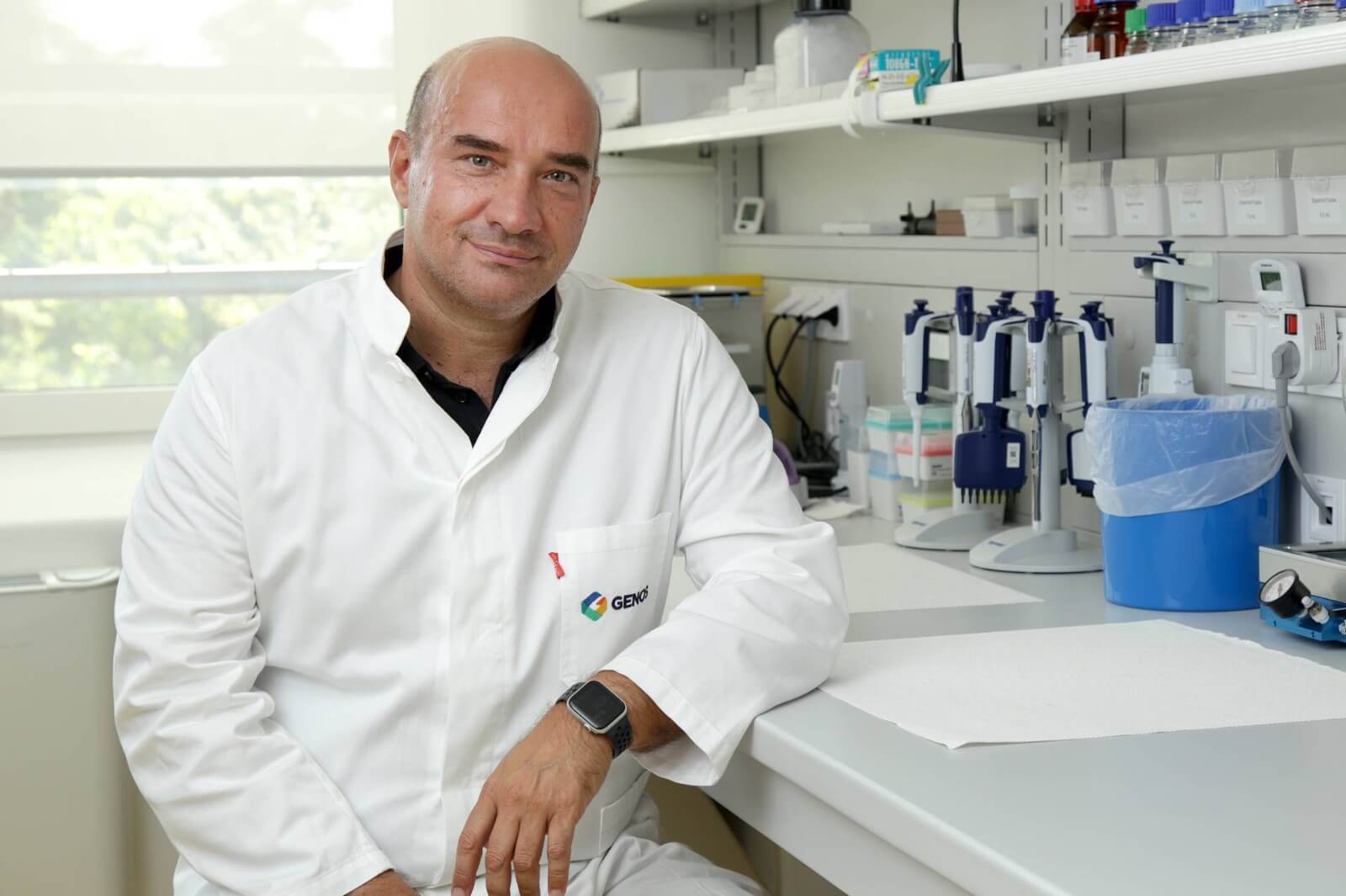A Newcastle-based life science company has announced it is designing a new at-home blood test, which has the potential to diagnose menopause and perimenopause.
GlycanAge, which is headquartered in The Catalyst on Newcastle’s Helix development, is an advanced independent test that analyses glycans (sugar molecules that coat cells) in the body to determine an individual’s biological age, bringing a whole new aspect of human biology to consumers.
Looking deeper into the predictive capabilities of the glycans, the GlycanAge team has been designing another take home blood test, MenoAge, which has the potential to diagnose perimenopause and menopause, supporting women in the UK and across the world to receive an accurate diagnosis and optimise treatment.
This announcement follows a study published earlier this month [February 10] in iScience, led by a team of researchers from GlycanAge’s parent company, Genos Glycoscience Research Laboratory in Zagreb, Croatia – as well as Newson Health Menopause & Wellbeing in Stratford upon Avon and King’s College London – who followed nearly 2,000 women for 15 years during their transition from pre-menopause to post-menopause, analysing their immunoglobulin G glycomes (IgG) several times during that period.
The study found changes in the glycome during perimenopause, indicating its composition could potentially be used as an early predictor for perimenopause.
Dr Cristina Menni, from Kings College London, said: “Perimenopause is poorly diagnosed due to highly irregular hormonal cycles and symptoms that can last for as long as 15 years. Currently, there is no accurate diagnostic test for perimenopause. Adding an easily quantifiable novel early biomarker of perimenopause could be a valuable improvement to current clinical praxis.”
Prof Gordan Lauc, chief scientific officer at GlycanAge and honorary professor at King’s College London, said: “A good biomarker of biological age needs to show relevance for real-life biology. In this respect, GlycanAge is so far the best biomarker. By tracking 2,000 women for 15 years, we just showed that perimenopause period is associated with much faster glycan ageing.
“MenoAge is intended to become a test for diagnosing perimenopause in an accurate, rapidly deployable, and cost-effective manner. Early diagnosis of menopause will lead to prompt treatment, thus preventing and alleviating (peri)menopausal symptoms associated with ageing, with a wide range of health and societal benefits.
“In the UK, timely treatment of perimenopause could save the NHS over £500 million. A validated diagnostic biomarker, therefore, has game-changing potential for the menopausal care pathway and could revolutionise the management of female health and ageing.”
The MenoAge test is not yet available for purchase, although the glycans analysed are already present in the GlycanAge test, but not interpreted as a menopause diagnostic. The team is currently in the process of having MenoAge recognised by the NHS and the National Institute for Health and Care Excellence (NICE).
Since moving its headquarters in 2021 to The Catalyst, which is home to the National Innovation Centre for Ageing (NICA) and a dynamic cluster of businesses focussed on life sciences, GlycanAge has a wealth of collaborative opportunities on its doorstep and is in the perfect environment to continue translating research discoveries into products for the healthcare market.
The Catalyst is located in the heart of the £350 million Newcastle Helix development, a vibrant quarter that brings together businesses, industry leaders, researchers and academics. The award-winning building is managed by Oxford Innovation, the UK’s leading operator of innovation centres.
Rebecca Robinson, centre manager at The Catalyst, said: “We have such a fantastic range of industry-defining businesses based in The Catalyst, leading the way to develop remarkable products such as MenoAge and services that address real-life challenges.
“GlycanAge is an incredibly innovate business and we’re proud they have chosen Newcastle and The Catalyst as a base to grow and develop their product, as they lead the way in biological ageing.”



